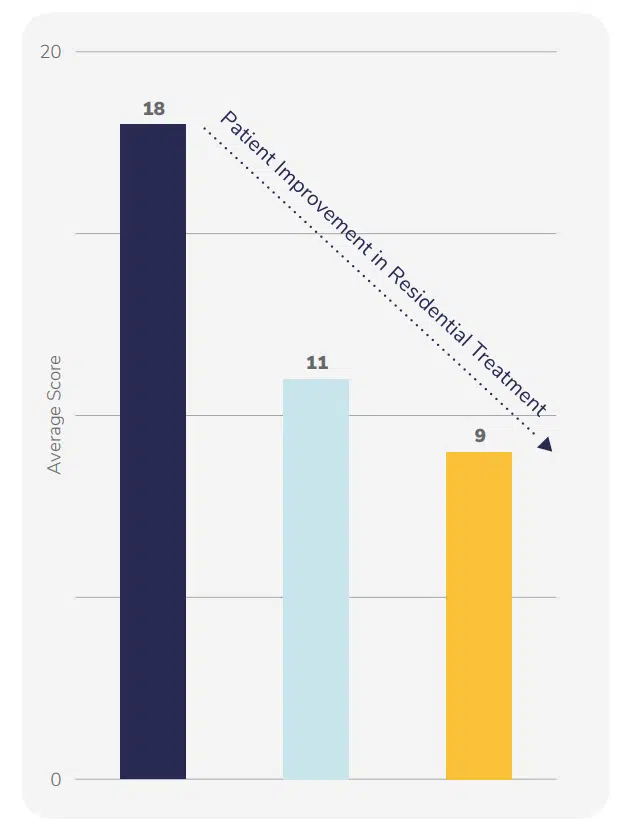The Science of Healing: 2022 Edition
Download your copy of Newport Healthcare’s Patient Outcomes and Key Findings.
What the Report Includes
Despite the increasing acuity of youth mental health issues, our residential and outpatient treatment programs continue to yield industry-leading results in measures of depression, anxiety, suicide risk, well-being, and family attachment.
Here’s what you’ll find in our latest edition:
- Teen and young adult patient profiles, including gender identity and sexual orientation
- Self-reported risk factors, such as sexual abuse and disordered eating behaviors
- How we achieved a 75% decrease in teen suicide risk and 50% decrease in depression
- Key well-being increases in young adults—with behavioral measures multiplying up to 5 times
- Satisfaction survey results from patients, parents, and referents
- Testimonials from our alumni and parents
Our Treatment Outcomes: Key Stats
75%
Reduction in Teen Suicide Plans
5x
Young Adults’ Well-Being Scores Increased by Up to 5 Times
10 out of 10
Referring Professionals Would Refer to Newport Again
50% Reduction in Teen Depression
Over 5 Weeks of Residential Care
The majority of our adolescent patients come to us with severe depression. In 2022, our integrated, patient-first approach resulted in a significant reduction in depressive symptoms, with the average score decreasing by 50%—from moderately severe to mild—by week 5.
Interpretation of the Levels
15–19 Moderately Severe
10–14 Moderate
5–9 Mild
Newport’s treatment for anxiety, depression, trauma, and other mental health issues is provided by clinicians who are trained and supervised in evidence-based modalities, including:
- Cognitive Behavioral Therapy
- Attachment-Based Family Therapy
- Dialectical Behavioral Therapy–Informed Skills
- Motivational Interviewing
- EMDR
- Art, Music, and Adventure Therapy

Complete the form above to download the report.
Our 2022 Patients
As part of our healthcare outcomes data, we also publish anonymous demographic statistics on our patient community, including family relationships data, self-reported substance use and disordered eating behaviors, and exposure to risk factors like bullying and sexual abuse.






